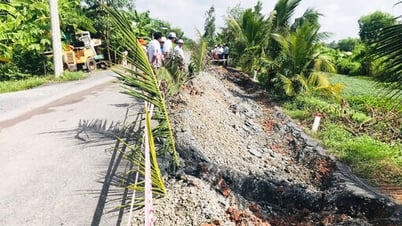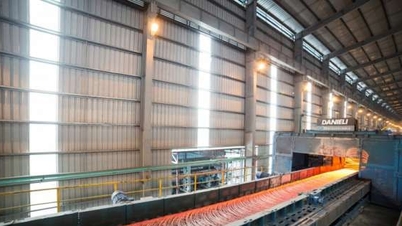Many people often feel like they have too much to do, are always in a hurry, and never have enough time.
Many people think we work more than previous generations, but that’s not true. Research shows that American men’s leisure time has increased from 6 to 9 hours a week over the past 50 years. Women’s leisure time has also doubled, from 4 to 8 hours a week.
Illustration: Thrive Global
So why do we still feel time-poor? Productivity experts have pointed out that people often fall into a number of “traps” that make it impossible to have enough time.
Technology interrupts leisure time
Technology saves us time, but it also takes it away from us. This is known as the autonomy paradox. The long stretches of free time we once enjoyed are now constantly interrupted by our technological devices. This negatively impacts our ability to perceive and allocate our free time.
You have an hour to rest in the evening, but every now and then you find yourself checking or responding to notifications, emails, or messages. These seemingly innocuous interruptions add up and can take up a significant amount of time and disrupt your rest time.
This makes us enjoy our breaks less and feel like we have less free time than we actually do.
Focusing too much on money
Another trap is the cultural obsession with work and making money. We are mistakenly taught that money (not time) brings more happiness.
Research shows that money protects us from sadness but doesn’t buy happiness. Having money certainly protects us from stress. Holding cash in hand even gives us a sense of security. But preventing negative outcomes is different from creating happy ones.
There is a misconception that the way to become richer in time is to become richer in money. This is actually a mistake because the pursuit of wealth and possessions is never-ending.
Underestimating time
In our money-obsessed culture, many people trade their time to protect their money. We instinctively choose the lowest-cost option, even if it’s not the optimal option.
For example, when you book a connecting flight to get a slightly cheaper rate, you are falling into a time trap. You may save $300 but you will spend 8 extra hours of your vacation and feel more tired and stressed.
It’s hard to measure the value of time, so it’s easy to make poor choices. You may still feel like the trade-off is worth it, but this simple calculation puts a different perspective on the value of time, which we tend to underestimate.
Consider busy as success
Our identities are increasingly tied to our work. In a 2017 survey in the US, 95% of young adults said that having a “meaningful and interesting career” was extremely important to them.
Because we feel our self-worth is determined by our work and productivity, appearing busy makes us feel good about ourselves. Conversely, focusing our attention on something other than work can threaten our status. We want to be seen as the employee who works the longest hours, even if those hours are unproductive.
Financial insecurity also fuels workaholism. Most of us cope by working more and trying to earn more money. We feel guilty when we spend money on things that make us happy, like eating out or taking vacations.
Aversion to idleness
Even if we lived in a completely egalitarian society we would still create time stress for ourselves because we have difficulty adapting to leisure.
Researchers call this idleness aversion, and it makes us do some strange things. An experiment at Harvard University found that when we have nothing to do, most people would rather do something, even something negative like giving themselves an electric shock, than sit around doing nothing.
Technology may keep the mind busy, but it is a trap that contributes to stress and lack of time. Constantly connecting to technological devices prevents the brain from recovering, leading to increased stress levels.
In fact, idleness has been shown to be a valuable form of leisure and can increase time affluence. The physical and mental benefits of freeing up the brain far outweigh the stress of keeping the mind busy.
Thinking that I have more time tomorrow
Most of us are overly optimistic about our future. We mistakenly believe that we will have more time tomorrow than we do today. This is sometimes called the planning fallacy – an underestimation of the time, costs, and activities required to complete a plan.
Statistically, the best predictor of how busy we will be next week is how busy we are now. Our minds often trick us into thinking that we will have more time later than we do now. This over-optimism creates a backlog of tasks, so that we end up with no time at all.
While these are the six most common time traps, there are of course many other reasons why we fail to make time. Achieving time abundance is about recognizing and overcoming the time traps in our lives and creating more happy and meaningful moments every day.
According to VNE
Source

































































































Comment (0)